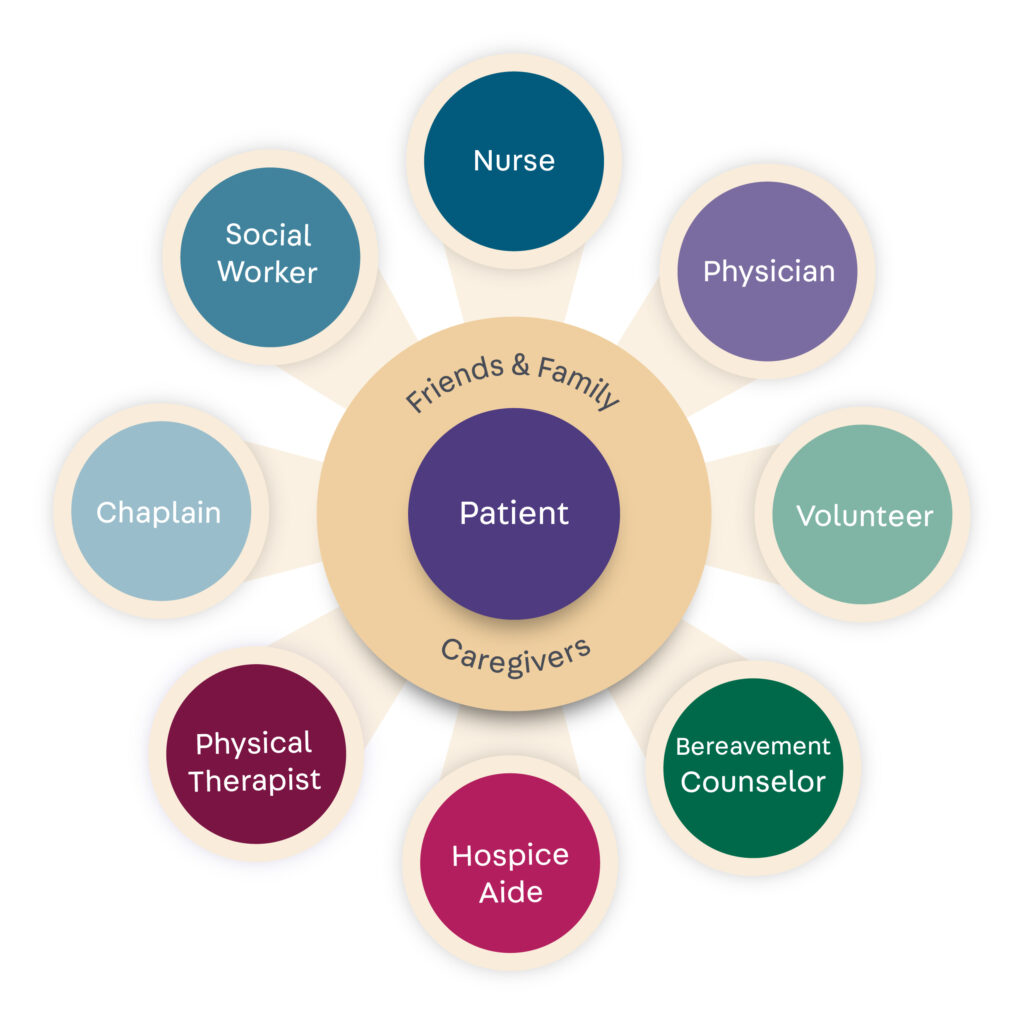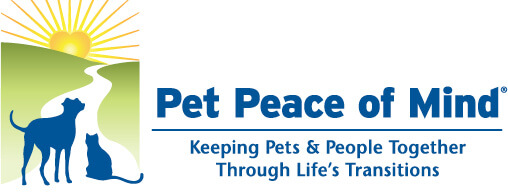Hospice is a comprehensive approach to end-of-life care that provides emotional, spiritual, physical, and psychological support tailored to each patient’s needs. This allows patients and loved ones to focus on the things most important to them, while providing peace of mind that help is always available.
Hospice care is provided to patients who have a prognosis of six months or less and who are no longer seeking curative treatment.

What is the difference between
Hospice and Palliative Care?
The goals of both hospice and palliative care are very similar: to relieve symptoms of a serious illness, provide comfort from pain, and improve quality of life for the patient and family. Hospice care is a specific type of palliative care delivered when a patient has a prognosis of six months or less and is no longer seeking curative treatment. The table below provides an outline to help you learn more.
| Hospice Care | Palliative Care Case Management | |
| Focus is on symptom relief and quality of life. | ✓ | ✓ |
| The patient has a life-limiting illness. | ✓ | ✓ |
| The patient can continue to receive curative treatment. | ✓ | |
| The patient’s life expectancy is six months or less. | ✓ | |
| The patient has a care team to support their medical and emotional needs. | ✓ | ✓ |
| Support for the patient’s family and friends is provided. | ✓ | ✓ |
| The patient can continue to receive care from their primary care provider. | ✓ | ✓ |
| Guidance on end-of-life decisions and preferences is provided. | ✓ | ✓ |
If you feel that our services might be right for you or a loved one, call us. We can help.
Lumina is proud to partner with several nationally-recognized programs to support those in hospice.

Lumina is a proud partner of the We Honor Veterans program. This program recognizes and serves the unique needs of Veterans as they approach end of life through respectful inquiry, compassionate listening, and grateful acknowledgement of their service. We thank our Veteran patients for their service.
Learn more:
https://WeHonorVeterans.org

We understand that the pet human connection can be a comfort as patients face end of life. Through donations and volunteer support Lumina provides help through the Pet Peace of Mind program that allows patients to complete their end-of-life journey without worrying about their pet’s current or future needs.
Learn more:
https://petpeaceofmind.org

Music can provide meaningful connection and stress relief to patients experiencing life-limiting illness. As a partner of Music & Memory, Lumina can provide patients with the therapeutic benefit of personalized music. The program is grounded in extensive neuroscience research about how our brains respond to personalized music.
Learn more:
https://musicandmemory.org
If you are living with a life-limiting condition but are not ready for hospice or palliative care, learn more about our Transitions program.
Read Our FAQs
When should a patient start hospice care?
Patients are eligible for hospice care when their doctor has estimated that they have less than six months to live and they are no longer pursuing treatment. Starting hospice care when a patient still has months to live, rather than days or weeks, allows everyone involved to benefit more from the services we can offer. Lumina will work with a patient’s primary care physician to determine if they are eligible for hospice.
Where do patients receive hospice care from Lumina?
Patients receive care in their own residence, wherever that may be. This could be a patient’s private residence, home of a family member, adult foster home, nursing facility, or retirement community. Lumina does not have a hospice house, preferring to care for people in the comfort of their home.
What types of equipment and medication does Lumina hospice provide?
We provide medical equipment, supplies, and medication related to the patient’s terminal illness and symptom management.
How does Lumina approach pain management?
Pain management is individualized according to each patient’s unique symptoms and preferences. We use everything from non-pharmacologic pain treatment, to over-the-counter pain relievers, to powerful opioids as needed and indicated.
Who pays for Lumina hospice care?
Basic hospice services are a benefit of Medicare or covered by private insurance or Medicaid for those not eligible for Medicare. Lumina’s nonprofit status and generous community support allow us to provide care that goes above and beyond the minimum Medicare requirements at no charge to the patient or family.
Does Lumina provide 24/7 support?
Yes. On-call staff are available 24/7 to answer questions and provide support.
How are family and friends of a patient supported?
Lumina provides emotional and practical support to families, including support for caregivers and grief support. We will work with you to determine the right support for you.
What if a patient is not sure they qualify for hospice?
The Lumina team can help determine if a patient is eligible for hospice or provide other options, including Palliative Care Case Management, Palliative Consults, and Transitions.
Does hospice improve quality of life?
The support provided by a hospice’s interdisciplinary teams allows patients and their families to gain the tools they need to improve their quality of life while living with a serious, life-limiting illness.
Who can refer someone to hospice?
Patients have the legal right to use the hospice agency of their choice. Referrals can be made by anyone – physicians, friends, patients, and families. To make a referral contact our Referral Coordinator at 541.757.9616.
Call to learn more about how Lumina can help.
If you think Hospice Care might be right for you or your patient, or if you have questions about the referral process, please call our Referral Coordinator at 541.757.9616.